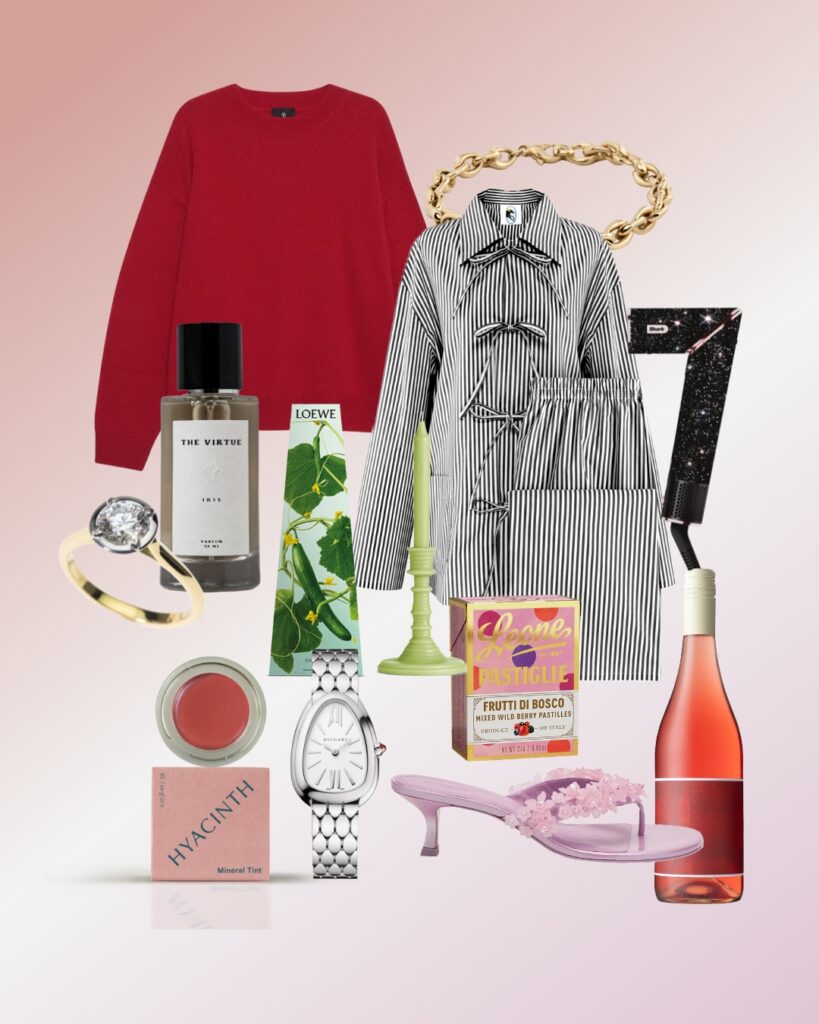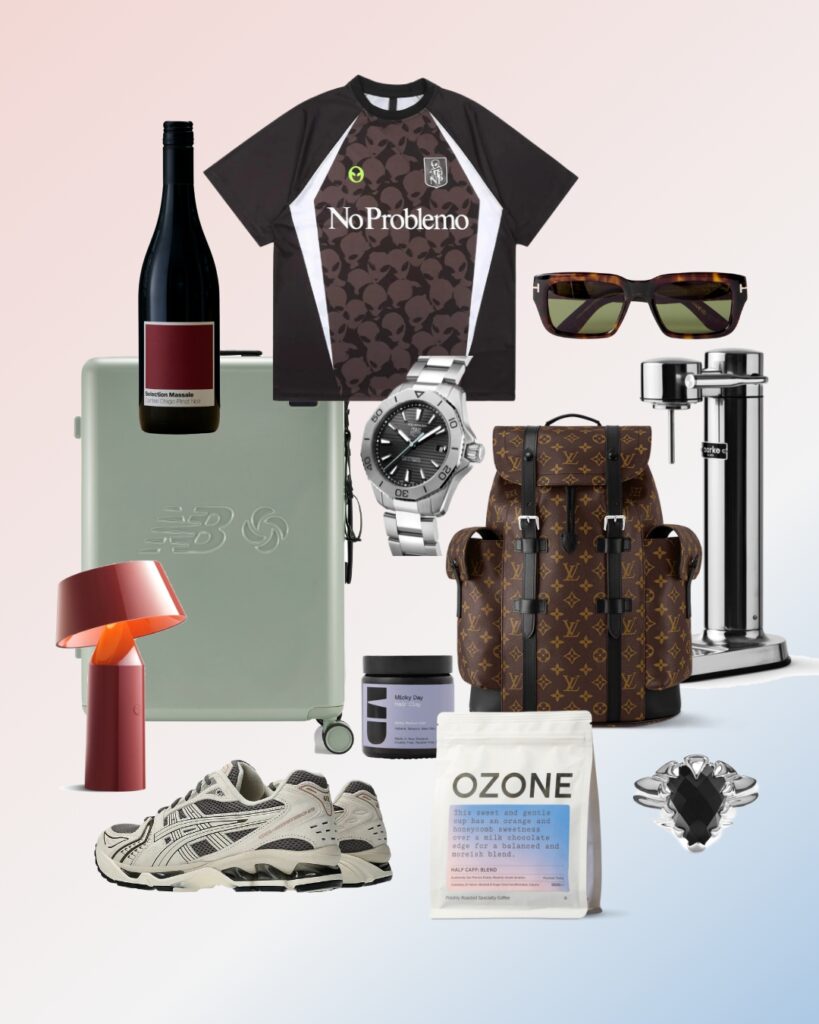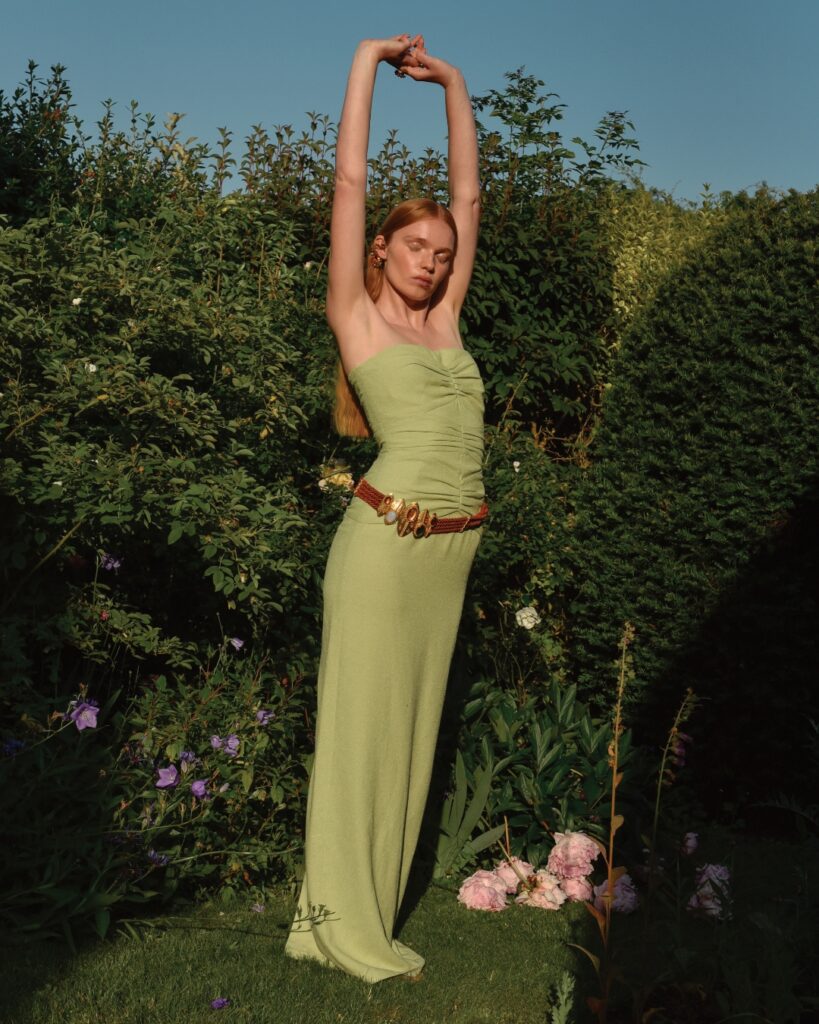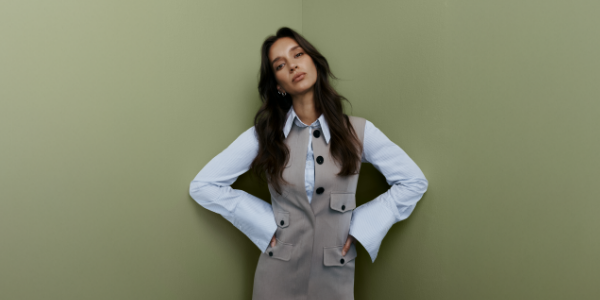We asked the fierce females behind five New Zealand brands to tell us about the women who inspire them, and what it means to be a feminist in fashion.
On a monumental day earlier this year, an estimated five million people around the world marched for women’s rights. The dust might have settled, but a universal sense of sisterhood remains, and in light of that we sat down with the women leading the way in New Zealand fashion.

Madeleine Harman and Jessica Grubiša, Harman Grubiša
On their female muses:
MH: “To date, our winter 2016 ‘Dakota’ range has been our strongest illustration of female muses. It was really an ode to the woman who holds her own. The Dakota is an historic building on the Upper West Side of Manhattan with a legacy spanning 130 years. It has been home to a raft of notable leading ladies, including Lauren Bacall, and Roberta Flack. Jess and I were reading about it a lot at the time of designing the collection (we share books!) and in turn, Maya Angelou, Jean Harlow and Nina Simone became namesakes for key pieces that carried the spirit of our Dakota story; the heroine, a woman empowered.”

Madeleine Harman and Jessica Grubiša design for “the woman who holds her own” as looks from their AW16 collection attest.
On the women who inspire them
MH: “Nowadays, it’s our clients and people within the industry who are creative and kind, who do amazing things, and are true to themselves and what they believe in. I was also brought up by a strong, beautiful woman, who is without a doubt an inspiring force in my life.”
JG: I’m inspired by any woman who is confident enough to be herself. And Miuccia Prada, always.”
On the Harman Grubiša brand ethos
JG: “The reason we got into fashion is to make women feel beautiful. Our ethos as a brand is to cater to that.”
MH: “Agreed. That whole concept of preying on women’s insecurities to sell product is completely counter to everything we believe in.”

Harman Grubiša AW17 also carries a strong theme of empowerment.
On ‘feminist fashion’
MH & JG: “In our job we see a lot of women afraid to be themselves, or apologising for themselves, and that, to us, is the biggest downfall of the whole conversation. It’s not our role to tell women how to look, or how to feel. We both believe strongly in the equality of sexes, and we think women should be celebrated just as much as men.”
On Trump, gender equality, and the women’s march
MH: “The Women’s March was a retaliation of women being persecuted. It was brave and it was necessary and so obscene that it even needed to happen.”
JG: “‘If you are neutral in situations of injustice, then you have chosen the side of the oppressor’ — Desmond Tutu.”

Anjali Stewart and Rachel Easting, Twenty-seven Names
On the Twenty-seven Names brand ethos
“The core of our brand is that we are two women out there doing it. We are in control of the imagery we are presenting, and we have been feminists since way before it was cool. We are very aware of our place in both the fashion and business industries, and as young(ish) women ourselves, we are conscious that we put forward a realistic and positive depiction of the brand. Our aim is to make women’s clothing that makes the wearer feel comfortable, confident and strong. Our campaigns centre around the portraiture of our subjects — it’s about the women wearing the clothes, not the other way around.”
On their female muses
“For our winter 2016 collection we imagined a dinner party (a reference to the work of legendary artist, Judy Chicago) where we invited a wide-ranging bunch of women who inspire us — everyone from Emma Watson, Beyoncé and Helen Clark, to Jenny Holzer, Mindy Kaling and Tracey Emin. For winter 2017 we decided to look closer to home. It’s not always about the stars of your favourite Netflix show, or the movers and shakers of the world. More often we’re inspired by our friends, our sisters, our team, our mothers.”
On ‘feminist fashion’
“Our winter collection ‘Leave No Stone Unturned’ is celebrated by a series of photographs of our team (ourselves included). Shot by James K. Lowe, this project allowed us to visualise our feminism within our brand. If we can see ourselves in the photographs, in the clothes, we can see that perfection isn’t a prerequisite to beauty. Your eye might jump to that thing you hate to see reflected in a photograph, but what happens when you look for a little longer? And what would happen if, instead of asking “How do I look?” we asked “What will I do today?” Beyond that, we think that every woman should be able to express herself as she sees fit. I’m going to do me, and you do you.”
On Trump, gender equality, and the women’s march
“F**k Trump.”
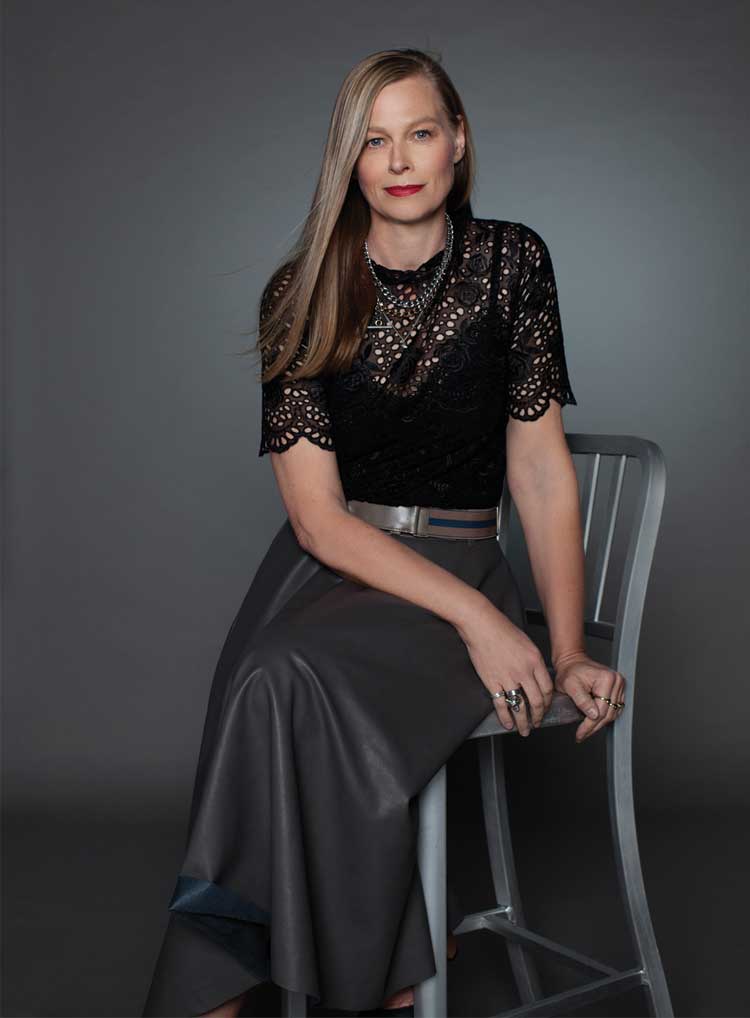
Kate Sylvester
On her female muses
“I have referenced so many muses, from Mia Wallace to Lee Miller, Marilyn Monroe to the Queen. They are all really strong, intelligent individuals who chose bold paths through life, but like all women they have vulnerabilities too. That’s actually what I find fascinating about them; I believe the stereotype of the perfect ‘superwoman’ is really negative.”
On the women who inspire her
“The themes in my work are always personal, so all the muses are women I genuinely admire. I am very lucky to be surrounded by strong women and my greatest role models have always been my mother and grandmother. My mother was a first-wave feminist and brought me up to believe that I can truly do anything.”
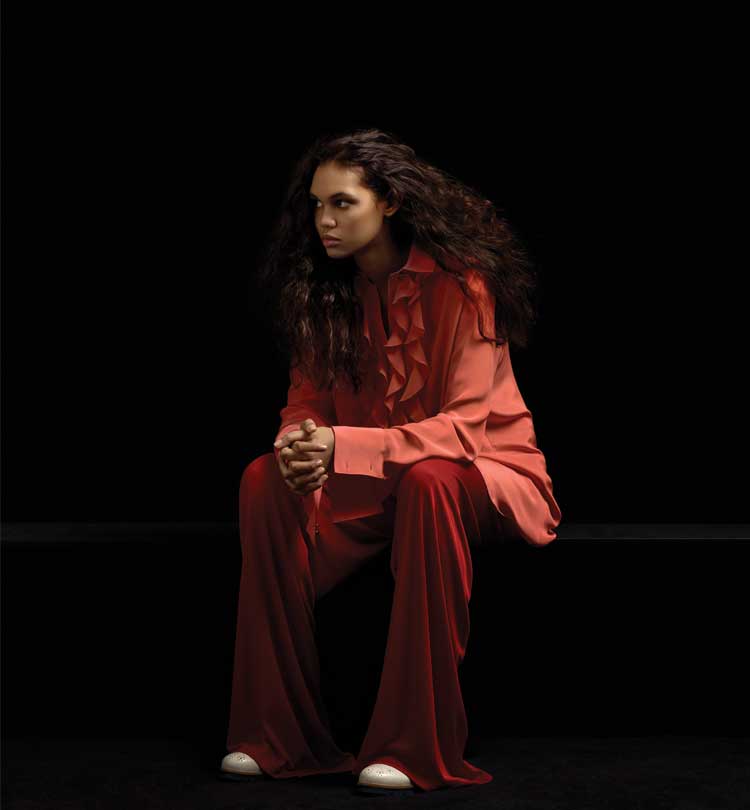
Kate Sylvester looked to Lee Miller for inspiration when designing her SS16 collection.
On the Kate Sylvester brand ethos
“I make beautiful clothes and we produce beautiful imagery to sell them. I see strength as an intrinsic part of beauty and ensure it is always present in everything we do.”
On the subjective interplay between fashion and feminism
“I agree that it’s totally subjective. Kim Kardashian is the perfect example of this. Some people find her empowering, I think the complete opposite. But then, ‘feminist fashion’ means women dressing to suit themselves, whether it is a Victorian gown or a pair of dungarees is not the point, what matters is that it makes that individual woman feel good about herself. I identify as a feminist and I’m wearing a lace dress.”
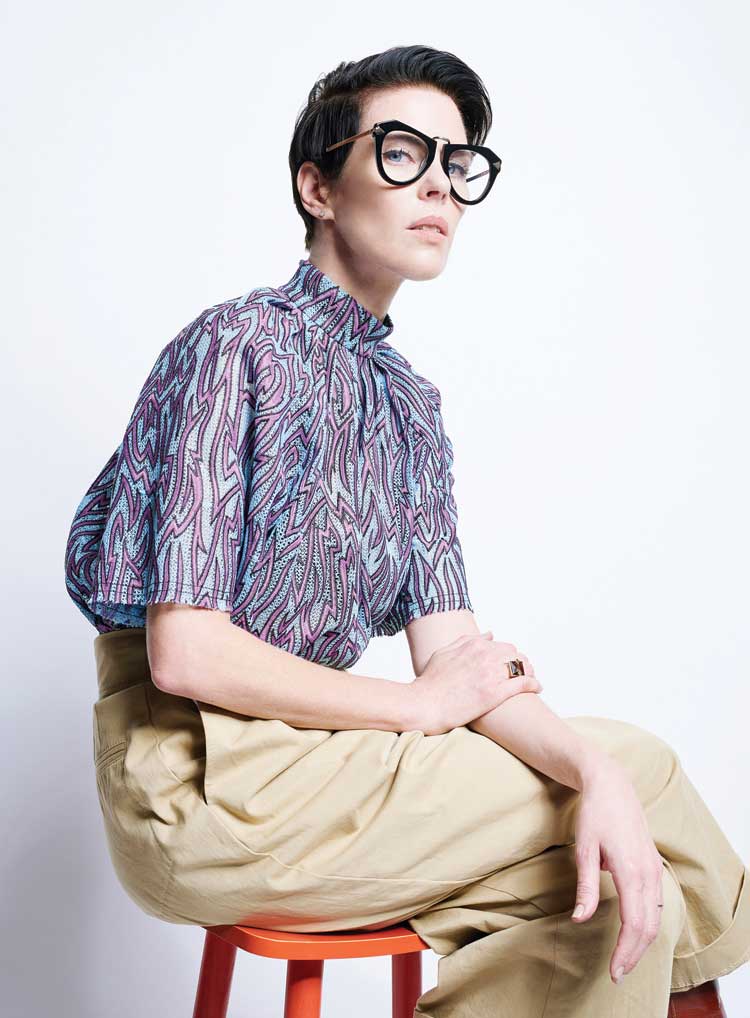
Karen Walker
On her female muses
“Much of our work, in ready-to-wear and beyond, has been inspired by strong female stories and women with outsider points of view: Amelia Earhart, Ally Sheedy in The Breakfast Club, Victorian suffragettes and suffragists, passionate and eccentric gardeners, Sapphire from Sapphire and Steel, the women of the Spanish Civil War, Berenice Abbott and more. What these people have in common is an intrinsic and uncompromising attitude and style. This attitude and style is iconised in our Runaway Girl and Arrow motifs: a brave, forward-thinking, individual attitude, a sense of adventure and a point of view that always looks forward.”
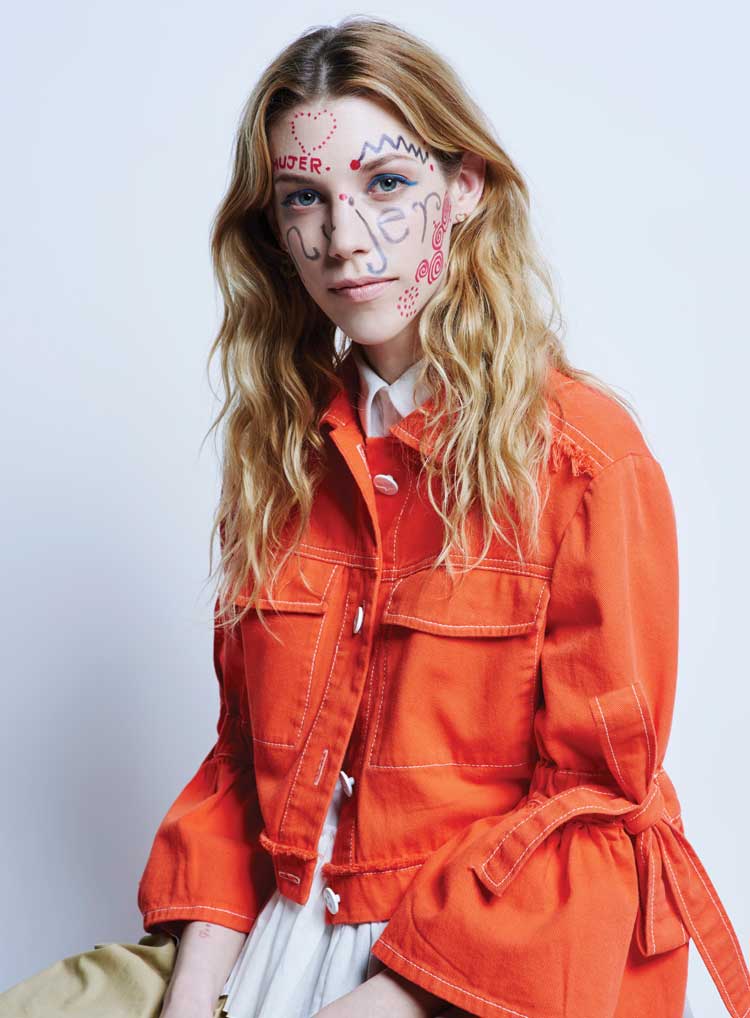
Brave, forward-thinking female muses are regularly at the forefront of Karen Walker’s collections.
On the women who inspire her
“When you’re in a creative field, inspiration sees no barrier between personal and professional, so the things that inspire me personally and work-wise are the same. So, all of the above women, plus so many more, inspire me. Just a few weeks ago I spent the day with Lee Miller’s son, Anthony Penrose, at their family home. Looking through Lee’s archives, drinking tea in her kitchen, snooping through her pantry, trying on her sunglasses and lunching in her local pub with Anthony was pretty thrilling as I’m such a fan of her writing, photography and general moxie. Basically, I’m always drawn to the anti-It girl, never the It girl.”
On the Karen Walker brand ethos
“I recently worked with one of my favourite talents yet, Phyllis Sues, who was one of the first American women to dance with the Ballets Russes. At the age of 93 she plays piano beautifully, every day, does hand-stands in her yoga practice, and has an intrinsic grace and elegance that comes through in everything she does and says. Personally, I’m only interested in working with people and on projects that capture this sort of strength and attitude.”
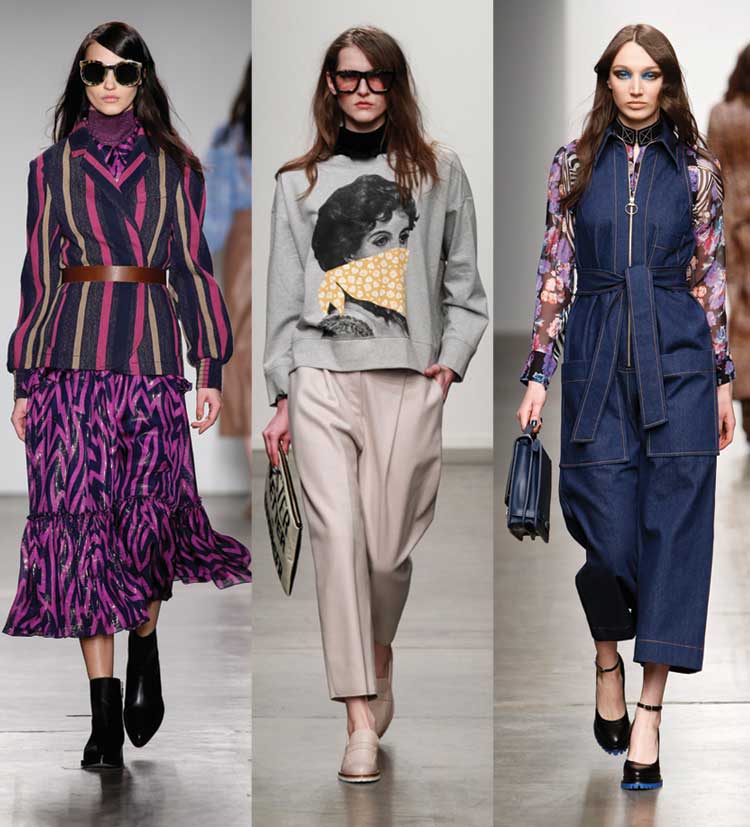
Karen Walker AW 2016
On the subjective interplay between fashion and feminism
“Well, everything’s subjective isn’t it? But, as a brand or a consumer you have a point of view and you stand by it. To me, ‘feminist fashion’ means freedom to be who you want to be.”
On Trump, gender equality and the women’s march
“I think a post on our Instagram sums it up pretty well — a protestor holding a placard reading: ‘I can’t believe I still have to protest this shit.’ I think that when circumstances become extreme, brands, as well as individuals, have to take a stand and not sit on the side-lines or put a buck each way.”
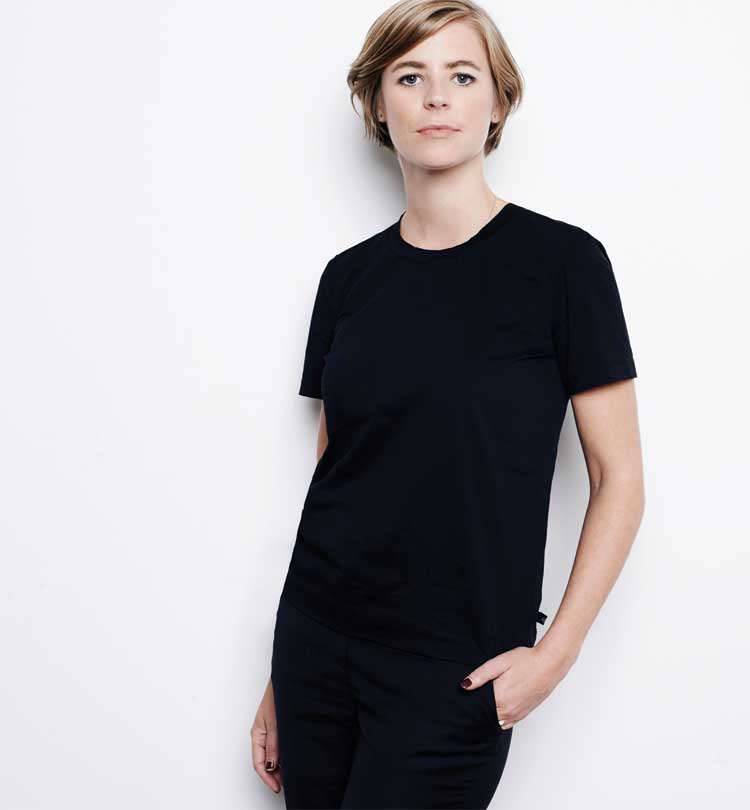
Emily Miller-Sharma, Liam
On her female muses
“When designing my autumn/winter 2017 collection I was thinking a lot about how important it is for us to expand our perspective on the world by consuming art. I became obsessed with a Rita Angus series of crayon drawings of the moon, whilst simultaneously reading A Little Life by Hanya Yanagihara and Hera Lindsey Bird’s self-titled book of poetry. I can’t specifically point to a button detail or a sleeve shape that is ‘inspired’ by these particular women but all three of them, in their own way, shifted my way of thinking. This ability to shift keeps my brain nimble and able to keep finding newness and beauty while working within the same seasonal framework that I need to work in.”
On the women who inspire her
“There are so many! Kim Hill’s ‘Saturday Morning’ show on Radio New Zealand has given me so much — introducing me to people and ideas I hadn’t heard or thought of before and expanding the way I think and the depth of my understanding on a topic. Jessica Hansell (Coco Solid) is another person who I think is amazing. I really respect and admire her approach to art-making and her ability to communicate that approach. Both of these women manage to exude fearlessness while still allowing themselves to be vulnerable which is incredibly powerful.”
On the Liam brand ethos
“A really important thing for me both as the Liam designer, and in my capacity as the general manager of the Ruby company, is that we empower our staff to develop and grow. We want our team to be happy, healthy women (at the time of this interview, we are an all-female team of 64 people) and this filters down through all facets of our company into real actions — whether it be internal or external training for career-based or personal development, the ability for anyone to suggest improvements to the way we do things, to making our workplace more fair and inclusive (and making sure the environment is one that encourages that kind of conversation), or actively encouraging positive engagement with the community through our newly-implemented volunteer scheme which is part of our Ethical Policy.”
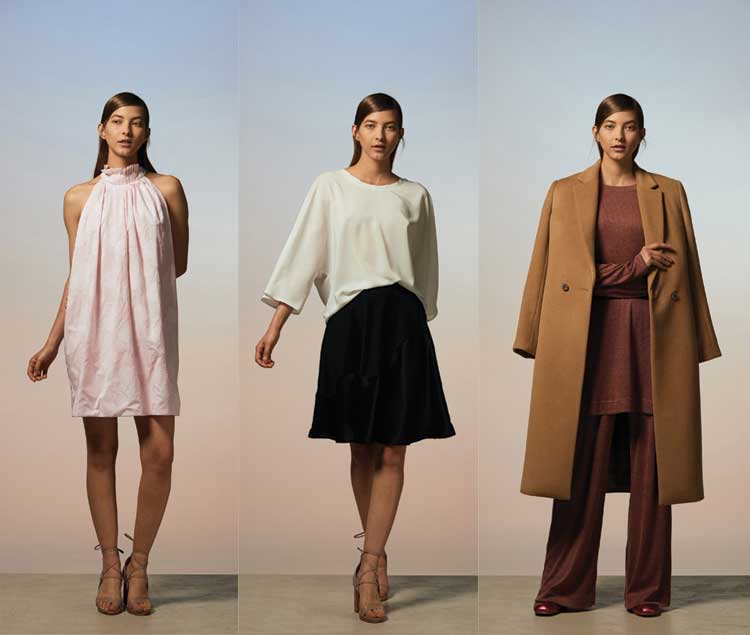
Liam’s AW17 collection is inspired by the works of Rita Angus, Hanya Yanagihara, and Hera Lindsey Bird.
On ‘feminist fashion’
“I’m all feminist, all the time so I guess ‘feminist fashion’ is just ‘fashion’ to me. But what is empowering to one person may be seen as objectification to another, which is why it’s important that we respect women enough to allow them the freedom to make their own value judgements about what is empowering for them, and make their own individual choices about what they want to wear.”
On trump, gender equality, and the women’s march
“Without wanting to diminish the genuine concern I have felt since the US presidential election, I’ve found events like the Women’s March empowering and invigorating. The main thing for me is that we all think about what matters to us and choose one or two things to really spotlight our attention on — whether it is continuing the fight for women’s reproductive rights, or closing the gender and race-based pay gaps, or caring for those who are affected by our appallingly high levels of domestic violence. If we focus our energies instead of despairing at everything we can be more effective.”
This article originally appeared in the Autumn 2017 issue of Fashion Quarterly.


